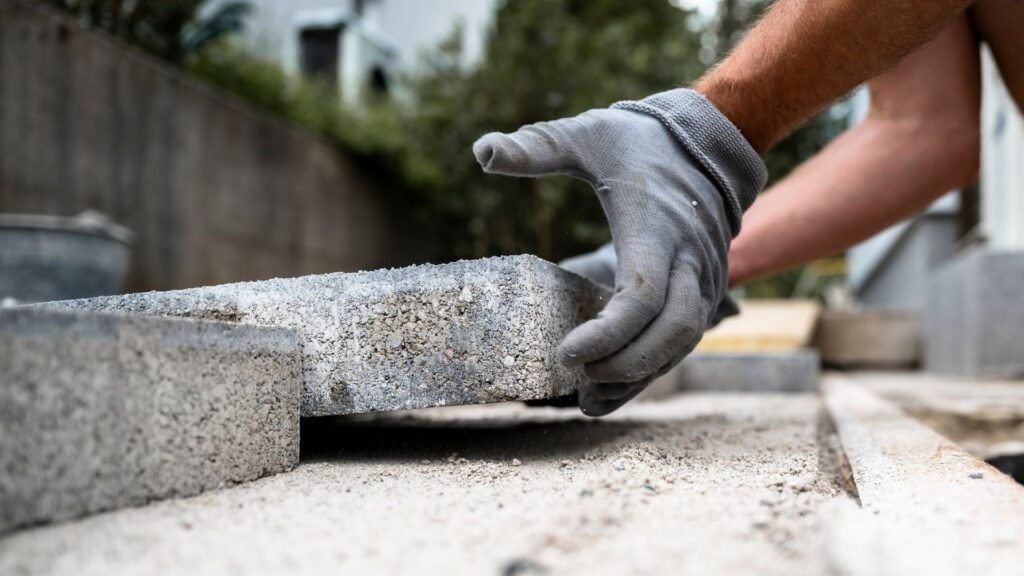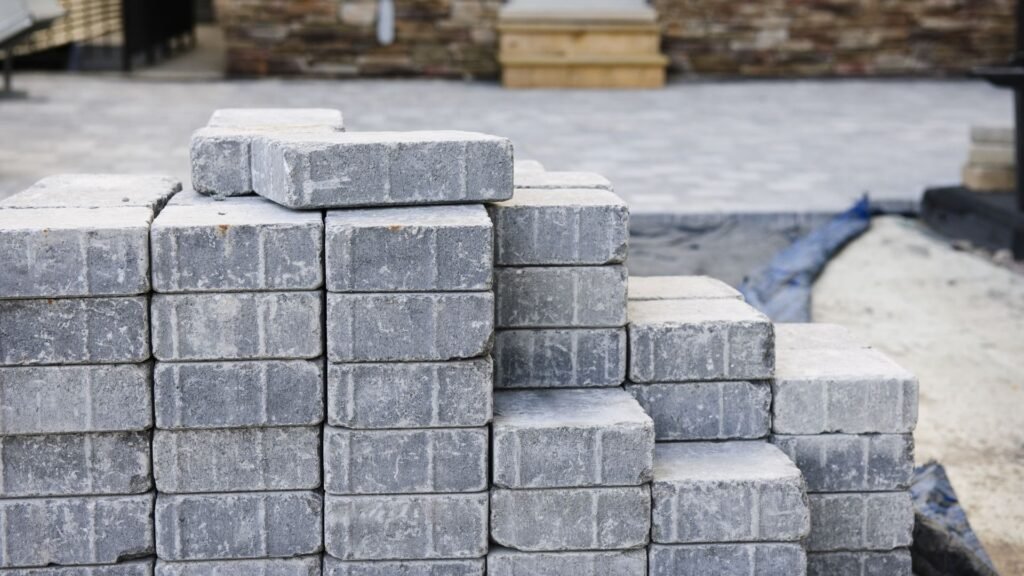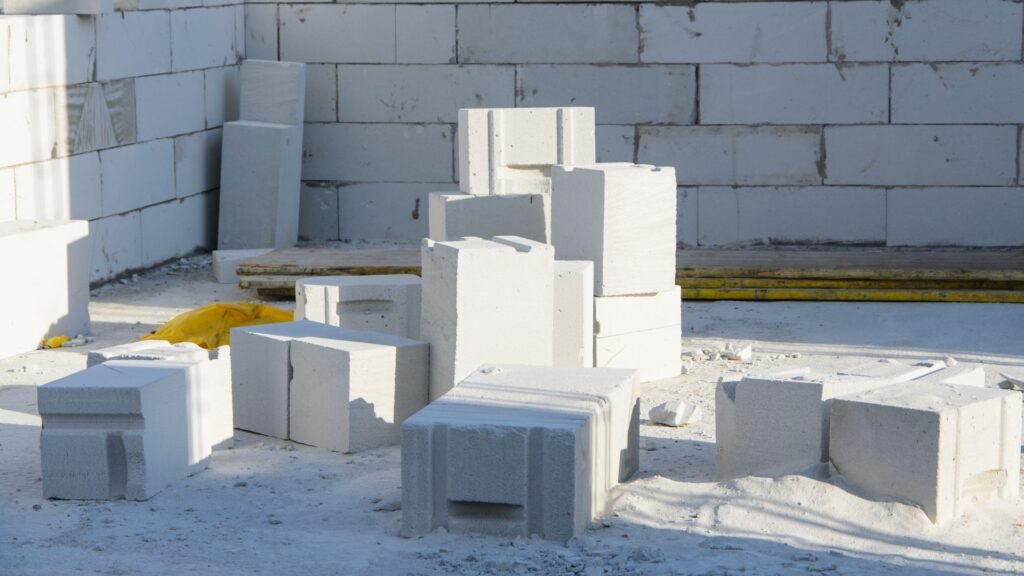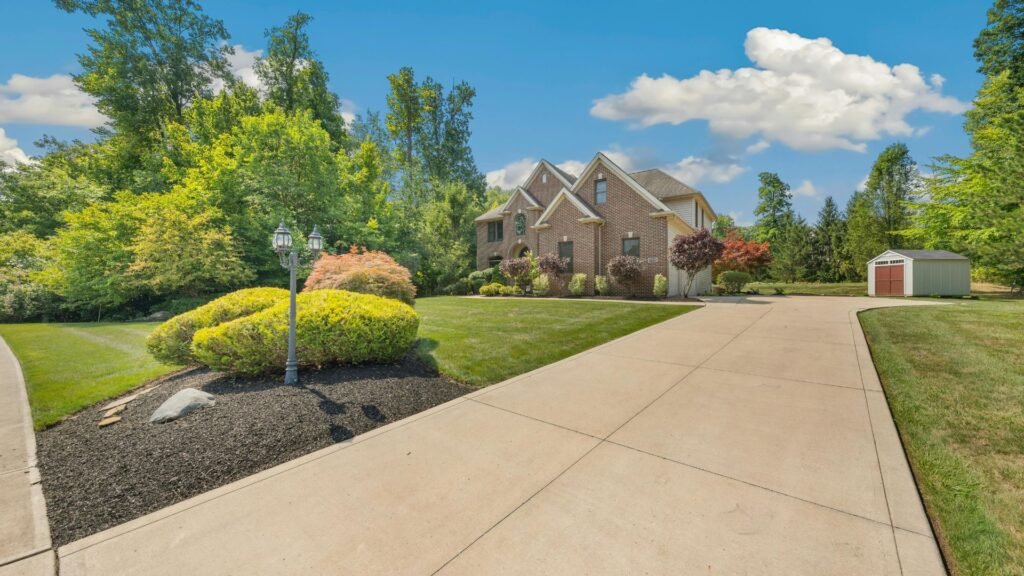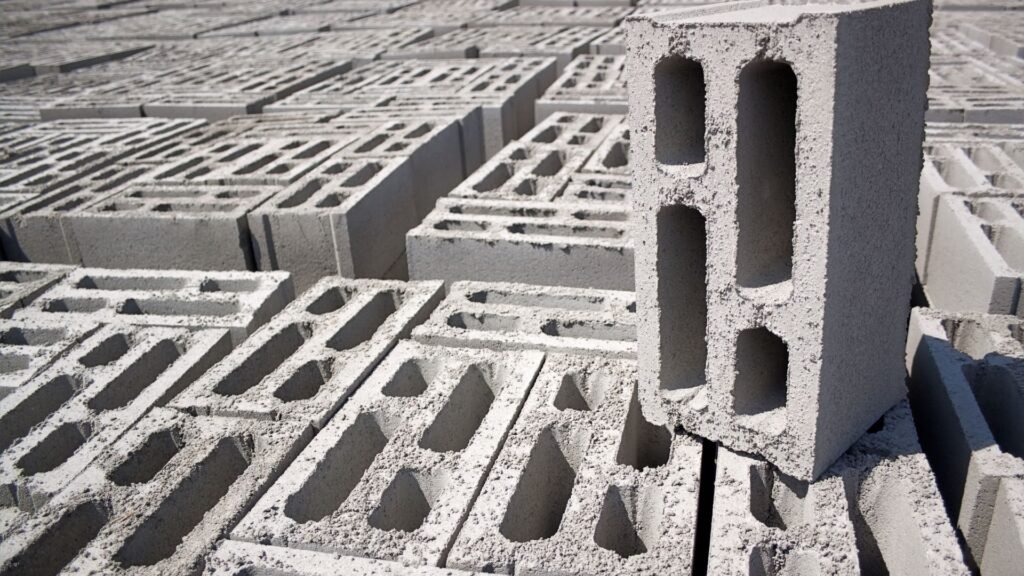Welcome to our guide on the real benefits of sealing your concrete driveway in NZ—because let’s face it, nobody wants to spend thousands on a driveway only to watch it crack, fade, and grow moss within a few years. Whether you’ve just poured fresh concrete or you’re trying to protect an older surface, sealing is one of the smartest, most cost-effective ways to keep your driveway looking great and lasting longer. With New Zealand’s unpredictable weather, harsh UV rays, and damp conditions, your concrete takes a beating year-round—but the good news is, sealing can change that. In this post, we’ll break down exactly why sealing is worth the investment, how it protects your driveway, and what every Kiwi homeowner should know before making the call.
Sealing your concrete driveway in NZ protects it from water damage, UV fading, stains, and moss growth caused by the country’s harsh weather. It extends the lifespan of the concrete, enhances curb appeal, and makes cleaning easier. Regular sealing also helps prevent cracks and surface erosion, saving homeowners on long-term repair costs.
Table of Contents
What Is Concrete Driveway Sealing?
Concrete driveway sealing is the process of applying a protective coating over the surface of your concrete to shield it from weathering, staining, moisture, and other damaging elements. In simple terms, it’s like adding a layer of invisible armor to your driveway that helps it stay looking great and functioning well for years to come.
Over time, concrete is exposed to harsh conditions—especially in New Zealand, where UV rays, rain, and moss buildup can take a serious toll. Sealing works by creating a barrier between the concrete and the outside environment. It stops water from penetrating the surface, prevents stains from setting in, and helps reduce the effects of weather-related wear and tear. It can also enhance the appearance of your driveway by bringing out the color and texture of the concrete.
There are several types of concrete sealers commonly used in New Zealand, and the best choice depends on your specific needs and the look you want to achieve. Penetrating sealers absorb into the surface and are excellent for protecting against moisture while maintaining a natural finish. These are a popular choice in NZ’s wetter regions. Acrylic sealers, on the other hand, sit on top of the concrete and provide a glossy or satin finish while offering UV protection. These are great for homeowners who want a more decorative look or who have colored or stamped concrete.
When it comes to applying the sealer, you have two main options: DIY or professional installation. DIY kits are available from most hardware stores and can be a cost-effective option if you’re comfortable with the process and have a smaller area to cover. However, a professional application can save time and often results in better, longer-lasting protection—especially for large driveways or high-traffic areas. A skilled contractor will ensure the surface is properly cleaned, repaired if needed, and evenly sealed using the right products for NZ conditions.
Whether you’re maintaining a brand-new driveway or trying to breathe life back into an older surface, sealing is one of the most valuable steps you can take to protect your investment and enhance your home’s curb appeal.

Why It’s Especially Important In NZ
NZ’s Climate: Rain, Moisture, UV Radiation
New Zealand’s climate is one of the key reasons why sealing a concrete driveway is not just a nice-to-have, but a smart investment. Many regions across NZ experience frequent rainfall, high humidity, and strong UV radiation throughout the year. From the damp, moss-prone areas of the West Coast to the intense sun exposure in the North Island, these weather elements can quickly wear down unsealed concrete. Without protection, concrete surfaces absorb water, which weakens their structure over time. Combined with UV exposure, this can lead to premature cracking, fading, and general deterioration.
Impact Of Seasonal Changes (Freeze/Thaw, Moss & Mould In Damp Areas)
Seasonal shifts in New Zealand can be tough on concrete. In colder parts of the South Island, for example, freeze and thaw cycles can cause water inside the concrete to expand and contract, leading to cracking and surface flaking. Meanwhile, in coastal or shaded areas, damp conditions encourage moss, mould, and algae growth, which can make driveways not only unsightly but also slippery and unsafe. These environmental conditions vary depending on your location, but they all share one thing in common: they’re tough on unprotected concrete surfaces.
Unique Challenges Faced By NZ Homeowners
Homeowners in NZ deal with a unique set of environmental pressures that are rarely experienced all at once in other countries. The combination of salty sea air, unpredictable weather patterns, and temperature fluctuations means that exterior concrete surfaces are constantly being tested. Driveways often take the brunt of this exposure, especially those without any overhead protection. Over time, this leads to discolouration, surface wear, and higher maintenance costs. For homeowners who want to maintain their property’s appearance and value, ignoring driveway protection can result in expensive repairs down the line.
How Sealing Helps With Moisture, Algae, And UV Protection
Concrete sealing provides a simple but powerful defense against New Zealand’s harsh conditions. A quality sealer forms a protective barrier over the surface, making it water-resistant and far less susceptible to moisture penetration. This helps to prevent cracks from forming during freeze-thaw cycles and keeps moss, mould, and algae from taking hold in damp areas. In addition, sealing offers UV protection by blocking the sun’s rays from breaking down the surface layer of the concrete. This not only helps preserve the colour and finish of your driveway but also extends its overall lifespan. For Kiwi homeowners, sealing is one of the easiest ways to stay ahead of seasonal wear and tear while keeping their property looking sharp year-round.

Top Benefits Of Sealing Your Concrete Driveway
When it comes to home maintenance in New Zealand, sealing your concrete driveway is one of the smartest and most cost-effective steps you can take. Whether your driveway is brand new or a few years old, applying a quality concrete sealer can significantly improve its durability, appearance, and lifespan. Below are the top benefits of sealing your concrete driveway, especially in the context of New Zealand’s unique climate and conditions.
Protection From Water Damage
One of the primary benefits of sealing your concrete driveway is protection from water damage. In many parts of New Zealand, rainfall is frequent and often heavy, which can lead to moisture seeping into the concrete. Over time, this trapped moisture can cause cracks, surface erosion, and internal deterioration. In colder regions like the South Island, water can freeze inside the concrete’s pores, expanding and causing freeze-thaw damage that leads to deep cracks and surface scaling. A quality concrete sealer acts as a water-repellent barrier, preventing these problems before they start and preserving the integrity of your driveway for years to come.
UV Resistance & Colour Preservation
New Zealand is known for having some of the highest UV levels in the world. These intense rays can cause exposed concrete to fade, become discoloured, or lose its decorative finish much faster than in other climates. Sealing your driveway protects it from harmful UV radiation, helping to maintain its original colour and appearance. This is especially important for decorative or coloured concrete driveways, where fading can diminish their visual appeal. By applying a UV-resistant sealer, you help ensure your driveway stays sharp, vibrant, and fresh-looking for longer.
Stain Resistance
Everyday life brings spills, leaks, and marks—whether it’s oil dripping from your car, barbecue grease, or muddy tyre tracks. Unsealed concrete is porous, meaning it absorbs liquids and stains easily, making those marks nearly impossible to remove completely. A sealed concrete driveway resists stains by creating a non-porous surface that keeps spills on top, where they can be quickly wiped or washed away. This added layer of protection makes cleaning easier and helps your driveway stay cleaner and more attractive with less effort.
Improved Curb Appeal
Your driveway is often the first thing people see when they approach your home. A well-maintained, sealed concrete driveway can enhance your property’s curb appeal dramatically. Sealers are available in a range of finishes—from natural matte to glossy—giving you the option to highlight the concrete’s colour, texture, or pattern. Whether your goal is a subtle enhancement or a high-end polished look, sealing gives your driveway a clean, finished appearance that complements your home’s exterior.
Extends The Life Of Your Driveway
Concrete is strong, but it’s not invincible—especially when it’s exposed to the elements year after year. Sealing extends the lifespan of your driveway by protecting it against the most common causes of wear and tear, including moisture penetration, UV exposure, and surface abrasion. While the upfront cost of sealing may seem like an added expense, it can save you thousands over time by reducing the need for repairs, resurfacing, or complete replacement. It’s a preventative investment that keeps your concrete in better condition for longer.
Easier Maintenance & Cleaning
Sealed concrete is much easier to maintain than unsealed surfaces. Because sealers create a smooth, non-porous surface, dirt, oil, and debris are less likely to stick and can be easily washed away with a hose or pressure washer. In areas prone to moss and algae growth—which is common in shaded or damp spots around NZ homes—a sealer helps prevent build-up, reducing the need for harsh chemical treatments or scrubbing. If you value low-maintenance living, sealing your driveway makes ongoing upkeep far simpler.
Boosts Property Value
A sealed, well-maintained driveway adds immediate visual appeal to your property, which can translate to increased market value. For potential buyers, a sealed driveway signals that the home has been cared for and maintained properly. It’s a small investment that can make a big impression. Whether you’re planning to sell soon or just want to protect your asset, sealing your concrete driveway is a cost-effective way to boost both curb appeal and property value in New Zealand’s competitive housing market.

Common Myths About Sealing Concrete Driveways
When it comes to sealing concrete driveways in New Zealand, there are still a few lingering myths that hold homeowners back from protecting their investment. The reality is, many of these misconceptions come from outdated advice or misunderstandings about what sealing really does. Let’s take a closer look at three of the most common myths and clear the air with facts.
“It’s Too Expensive” – Breaking Down Cost Versus Benefit
One of the biggest reasons people avoid sealing their concrete driveway is the assumption that it’s a high-cost, low-reward project. But this couldn’t be further from the truth. While there is an upfront cost—especially if you hire a professional—the long-term savings and protection you gain are substantial. Without sealing, your driveway is far more likely to suffer from cracking, fading, staining, and moisture damage. Over time, those issues can lead to expensive repairs or even full replacement. Sealing acts as a protective barrier, extending the lifespan of your concrete by years, if not decades. When you weigh the cost of sealing (typically between $7–$15 per square metre in NZ) against the cost of major repairs or replacement, it’s clear that sealing is a smart, cost-effective investment in your home.
“It’s Only For Decorative Concrete” – Busting The Myth
Another common misconception is that only stamped, coloured, or decorative concrete needs to be sealed. While decorative concrete does benefit from sealing to preserve its appearance, the truth is that all concrete driveways—plain or fancy—are vulnerable to the elements. Rain, UV rays, oil stains, moss, and temperature fluctuations can all cause damage over time. Sealing helps prevent this by creating a water- and stain-resistant layer that protects the surface, no matter what it looks like. Even a standard grey concrete driveway will hold up better and stay cleaner with proper sealing. So whether your driveway is simple or stylish, it deserves the same level of protection.
“You Only Need To Do It Once” – The Reality Of Reapplication Every 3–5 Years
Some homeowners think sealing is a one-and-done task, but like many forms of home maintenance, it’s something that needs to be revisited regularly. In New Zealand’s climate—especially with UV exposure in summer and moisture in winter—sealants gradually wear down over time. Most high-quality concrete sealers last between 3 to 5 years, depending on the product used, how much traffic the driveway sees, and the local conditions. Waiting too long to reseal can leave the surface exposed again, reducing the protection and increasing the risk of damage. The good news is that resealing is much easier and more affordable than starting from scratch or fixing major issues later. A little ongoing maintenance goes a long way.

What Does It Cost To Seal A Concrete Driveway In NZ?
When it comes to sealing your concrete driveway in New Zealand, the cost can vary depending on several key factors. Whether you’re considering doing it yourself or hiring a professional, it’s important to understand what goes into the pricing so you can make an informed decision that fits your budget while still protecting your investment.
Price Range: DIY Vs Professional
If you’re taking the DIY route, you can expect to spend between $100 to $300 for basic supplies such as a quality sealer, a sprayer or roller, and surface cleaners. While this may sound affordable, keep in mind that the results largely depend on your prep work and application technique. On the other hand, professional sealing services in NZ typically cost between $7 and $15 per square metre. For an average-sized driveway, this could range from $500 to $2,000. Although the upfront cost is higher, professional services often include surface preparation, crack repairs, and long-lasting commercial-grade sealers that provide better protection and finish.
Variables: Size Of Driveway, Sealer Type, Condition Of Concrete
Several factors influence the final cost. The size of the driveway is an obvious one—larger surfaces require more material and time. The type of sealer you choose also plays a role; for example, penetrating sealers are more expensive than acrylics but offer deeper protection. Lastly, the condition of your concrete can impact cost. If your driveway has cracks, oil stains, or surface damage, these issues need to be addressed before sealing, which adds to the labour and materials involved.
Why Cheapest Isn’t Always Best—Importance Of Quality Sealant And Application
It’s tempting to go for the lowest price, especially with so many DIY products on the market, but the cheapest option often ends up costing more in the long run. Lower-quality sealers may wear off faster, fail to protect against moisture or UV rays, and require reapplication much sooner than expected. A poor application can also lead to uneven finishes, streaks, or missed spots—leaving parts of your driveway vulnerable. Investing in a high-quality sealant and a professional application ensures longer-lasting protection, enhances the appearance of your driveway, and saves you from premature repairs or resurfacing costs.
In short, while sealing your concrete driveway is an expense, it’s one that pays off through increased durability, curb appeal, and reduced maintenance. The key is to balance cost with quality—because when it comes to protecting your home, cutting corners isn’t worth the risk.
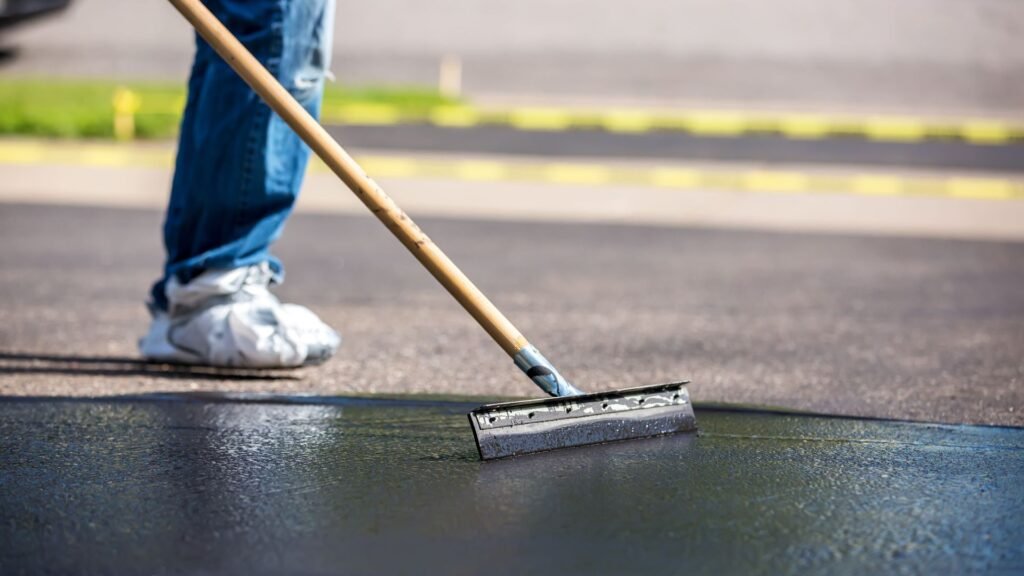
DIY Vs Professional Sealing – What’s Right For You?
When it comes to sealing your concrete driveway in New Zealand, many homeowners ask the same question: should I do it myself or hire a professional? The answer depends on a few key factors like time, budget, skill level, and the condition of your driveway. Both DIY and professional sealing have their pros and cons, and the right choice will vary depending on your goals and circumstances. Let’s break down what each option involves so you can make an informed decision that suits your needs.
Pros And Cons Of DIY Concrete Sealing
For some Kiwi homeowners, the DIY route feels like a straightforward way to save money and take control of the project. The biggest advantage of sealing your driveway yourself is cost. DIY kits and concrete sealers are widely available at local hardware stores, and you can avoid labour charges altogether.
However, this option does require a fair bit of preparation and precision. Without proper surface cleaning, even application, and correct weather conditions, you could end up with patchy finishes or trapped moisture under the sealant. If you’re sealing for the first time, there’s also a learning curve involved—especially when working with solvent-based or decorative finishes. Additionally, most DIY-grade sealers may not last as long as professional products, which means you might need to reseal sooner than expected.
Pros And Cons Of Professional Concrete Sealing
Hiring a professional may come at a higher upfront cost, but it offers peace of mind and often better long-term results. Trained contractors know how to prep, clean, and apply sealant properly for maximum durability and aesthetic appeal. They’ll also have access to higher-grade commercial sealers that offer better protection against water, oil stains, UV damage, and moss growth—especially important in New Zealand’s ever-changing weather.
One of the main benefits of working with a professional is that they’ll spot and address issues like surface cracks, oil contamination, or existing damage before sealing. This extra level of care can extend the life of your driveway significantly. The downside, of course, is the cost. But for large driveways, intricate finishes, or surfaces with damage, the investment is often well worth it.
Tools, Time, Effort, And Know-How Required
DIY sealing requires more than just a can of sealer and a roller. You’ll need a pressure washer to clean the surface thoroughly, safety gear to handle chemicals, and tools like brushes or sprayers for application. Time-wise, expect to spend a full day preparing and sealing a standard-sized driveway, not including drying time. You’ll also need to pay close attention to the weather, as rain or humidity can ruin the finish.
If you’ve never done it before, be prepared to do some research or watch tutorials before diving in. Mistakes like over-application, missed spots, or sealing over dirt or moisture can lead to peeling, bubbling, or ineffective protection.
Professionals, on the other hand, arrive with all the right tools, from industrial cleaning machines to commercial-grade sealers. They know how to work efficiently and handle any surprises along the way. For homeowners who don’t have the time, tools, or confidence to do it right, professional help is often the smarter choice.
When To Call In The Pros
There are certain scenarios where hiring a professional is the better—and sometimes only—option. If your driveway has deep cracks, oil stains, or heavy moss buildup, a professional can treat and repair the surface before applying the sealant. Likewise, if your driveway includes coloured, textured, or stamped concrete, proper sealing becomes even more critical to preserve its look and finish.
Large driveways or those with awkward layouts are also better left to experienced hands, as even coverage and curing become harder to manage on your own. Lastly, if you’ve previously sealed your concrete and need to strip or recoat it, the removal process can be complicated and is best handled by someone who knows what they’re doing.

When & How Often Should You Seal?
Timing is everything when it comes to sealing your concrete driveway in New Zealand. While the process itself is straightforward, sealing at the right time—and knowing how often to repeat it—can make all the difference in how well your driveway stands up to the elements. Let’s break down what you need to know.
Best Seasons For Sealing In NZ: Spring And Summer
The best time to seal your concrete driveway is during spring or summer. These seasons offer the ideal conditions—warmer temperatures, lower humidity, and less rainfall—which all contribute to better adhesion and faster curing of the sealer. Concrete sealers need a clean, dry surface and several hours (or even days) of dry weather to set properly. Attempting to seal during colder months or rainy conditions, especially in parts of the South Island, can result in poor absorption and reduced effectiveness.
If you’re in an area prone to sudden showers or high humidity, it’s smart to check the forecast and aim for a stretch of dry days before starting the sealing process.
Reapplication Every 3–5 Years Depending On Weather And Use
Concrete driveways in NZ should typically be resealed every 3 to 5 years. However, this can vary depending on a few key factors:
- Climate Exposure: Homes in coastal or high-rainfall areas may need more frequent sealing due to increased moisture.
- Sunlight and UV: Direct sunlight can wear down sealers more quickly, especially in regions like Auckland or Nelson that get high UV exposure.
- Usage Levels: Driveways that experience heavy vehicle traffic or frequent use may show signs of wear sooner.
Keep in mind that not all sealers are created equal—some last longer than others, especially higher-grade professional products. If you’ve used a DIY sealer or a budget-friendly option, you may need to reseal more often.
Warning Signs Your Driveway Needs Resealing
Not sure if it’s time to reseal? Here are a few telltale signs that your concrete driveway is due for a refresh:
- Faded Appearance: If the color looks dull or washed out, your sealer may have worn off.
- Water Is No Longer Beading: When water no longer forms droplets on the surface and instead soaks in quickly, it’s a clear indicator the sealer has lost its effectiveness.
- Surface Stains Or Oil Marks: If stains are starting to absorb into the concrete instead of sitting on top, your protective layer is no longer doing its job.
- Increased Moss Or Algae Growth: In damp, shaded areas, a worn-out seal can allow moss and mildew to thrive.
- Small Cracks Or Surface Roughness: When minor cracks or surface deterioration start to appear, sealing can help stop further damage before it becomes a costly repair.
Being proactive about resealing not only maintains the appearance of your driveway—it also extends its lifespan and protects your investment. Set a reminder every few years to inspect your driveway, or schedule a professional check-up if you’re unsure.

What To Expect From The Process
If you’ve decided to seal your concrete driveway, it’s helpful to understand what the process involves from start to finish. Whether you’re doing it yourself or hiring a professional, knowing what to expect can help you plan your time, avoid common mistakes, and ensure the best possible results. Here’s a clear, step-by-step look at what goes into sealing a concrete driveway in New Zealand.
Step 1: Surface Cleaning
Before anything else, the surface must be thoroughly cleaned. This means removing all dirt, oil stains, moss, algae, and debris using a high-pressure water blaster or driveway cleaner. Any leftover grime can prevent the sealer from bonding properly, so this step is crucial for a long-lasting finish.
Step 2: Repairing Any Damage
Next, inspect the driveway for any cracks, chips, or surface damage. If left untreated, these flaws will still be visible after sealing and may worsen over time. Small cracks can be filled with concrete filler or patching compound, while larger areas may need professional resurfacing before sealing.
Step 3: Applying The Sealer
Once the surface is clean and dry, the sealer is applied using a roller or sprayer. Most sealers require two thin coats for maximum effectiveness. The first coat is left to dry for a few hours, then the second coat is applied. It’s important to follow the manufacturer’s instructions carefully, especially regarding coverage and drying conditions.
Step 4: Drying And Curing Time
After the final coat, the driveway needs time to dry and cure properly. Most water-based sealers dry to the touch within a few hours, but the curing process may take up to 24 to 48 hours depending on the weather. Solvent-based sealers may take a bit longer. It’s best to avoid walking or driving on the surface until it’s fully cured to prevent damage or uneven finishes.
When You Can Use Your Driveway Again
In general, you should avoid any foot traffic for at least 24 hours and hold off on driving over the surface for 48 to 72 hours. Drying time can vary based on the temperature, humidity, and type of sealer used. Warmer, drier conditions will speed up the process, while cooler, damp weather may require additional time. Always check the specific product guidelines and err on the side of caution.
By understanding what to expect during the sealing process, you can better prepare your space, avoid unnecessary delays, and enjoy a clean, durable, and protected concrete driveway that stands up to New Zealand’s weather conditions.
Whether you’re just exploring your options or ready to seal the deal, our team is here to help. Visit Concrete Driveways Auckland to learn more about our concrete care services and how we can keep your driveway looking its best year-round.
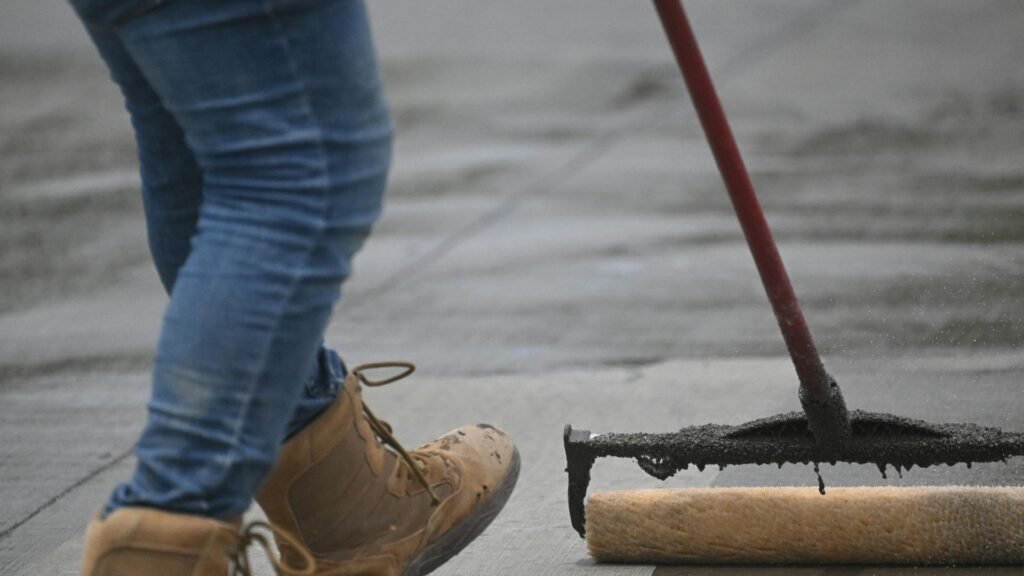
FAQs: About The Benefits Of Sealing Your Concrete Driveway NZ
Is sealing a concrete driveway really necessary in New Zealand?
Yes, sealing is highly recommended in NZ due to the country’s climate. Constant rain, strong UV rays, and moss-prone conditions can quickly wear down concrete. Sealing adds a protective layer that helps prevent cracks, fading, and moisture damage.
How often should I seal my concrete driveway?
In most parts of New Zealand, it’s best to reseal your concrete driveway every 3 to 5 years. Factors like weather exposure, traffic levels, and the type of sealer used can affect how often sealing is needed.
What are the main benefits of sealing a concrete driveway?
Sealing protects against water damage, UV fading, stains, moss and algae buildup, and surface wear. It also enhances the driveway’s appearance, makes cleaning easier, and extends the concrete’s lifespan.
Will sealing help prevent moss and mould on my driveway?
Yes, a high-quality sealer creates a water-resistant barrier that reduces the growth of moss, mould, and algae—especially in damp or shaded areas common in New Zealand homes.
Can I seal a concrete driveway myself, or should I hire a professional?
You can seal a driveway yourself using store-bought products, but professionals often achieve better, longer-lasting results. Hiring an expert is especially helpful for larger areas, decorative concrete, or if the surface needs repairs first.
How long does concrete driveway sealer last in NZ conditions?
Typically, sealers last between 3 to 5 years depending on weather exposure and the quality of the product used. Harsh sunlight, heavy rain, and frequent use can reduce the lifespan of the seal.
Does sealing change the look of my concrete driveway?
Sealing can enhance the colour and texture of the concrete, often giving it a slightly glossy or darker finish. However, there are matte options available for a more natural look.
How much does it cost to seal a concrete driveway in NZ?
Costs vary depending on the size of the driveway, the type of sealer used, and whether it’s DIY or professionally done. On average, expect to pay between $7–$15 per square metre for professional sealing in NZ.
What’s the best time of year to seal a concrete driveway in NZ?
Spring and summer are ideal, as warm, dry weather helps the sealer cure properly. Avoid sealing in winter or during rainy periods, as moisture can interfere with the sealing process.
Can I seal an old or previously unsealed concrete driveway?
Absolutely. Older driveways can benefit greatly from sealing, especially if they’re cleaned and any cracks are repaired first. Sealing can revive the appearance and add years to its lifespan.
Conclusion
Sealing your concrete driveway is one of those home maintenance tasks that might seem optional at first—but once you understand the long-term advantages, it quickly becomes a no-brainer. From protecting against harsh New Zealand weather to preventing cracks, fading, and moss growth, the benefits are both practical and visually rewarding. A sealed driveway doesn’t just last longer; it stays cleaner, looks better, and adds value to your property. Whether you live in a wet, shaded area or under constant sun exposure, sealing creates a durable barrier that keeps your concrete in top shape. It’s a smart, affordable investment for NZ homeowners who want to avoid costly repairs and keep their home’s exterior looking sharp. Whether you choose to tackle the job yourself or hire a professional, sealing your driveway is one of the simplest and most effective ways to protect and enhance your property.



